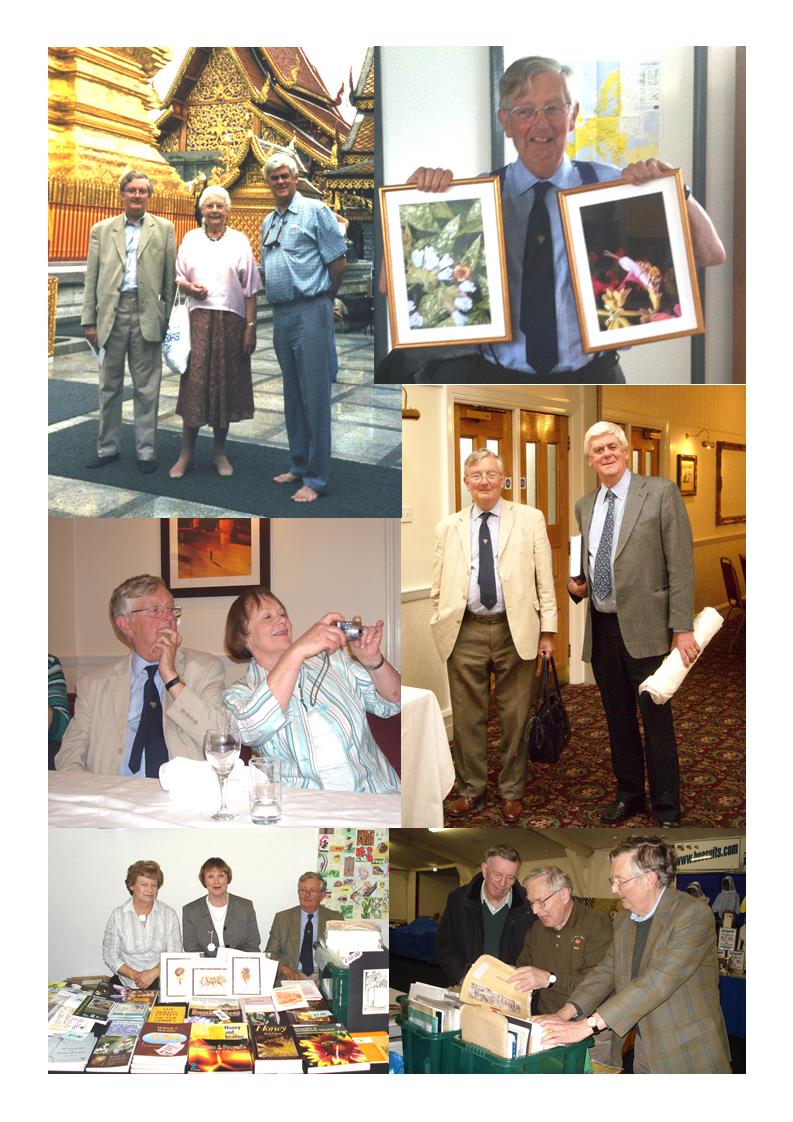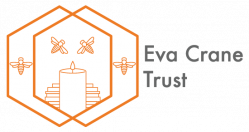Chairman's tribute to David Smith QC
Chairman's tribute to David Smith QC
 His Honour David Smith QC
His Honour David Smith QC
1938 – 2015
David Smith was born in Deal, Kent and attended Lancing College, Sussex and Merton College, Oxford before taking up a career in the law. He joined the Middle Temple and practiced as a barrister in London, appearing in the city’s famous courts including the Old Bailey. He took silk in 1982 and became a Crown Court Judge on the Western Circuit based at Bristol in 1986.
Bees and bee books were a major part of David’s life away from the law courts. His beekeeping started when he took an interest in his school’s WBC beehives. In those days he had great difficulty in finding the queen and often claimed that he had not improved much at finding her even after sixty years of practice. He filled in as a prep school teacher for a couple of terms when waiting to go up to Oxford and in that time met Capt. Tredwell, the Country Beekeeping Instructor for Hampshire. Tredwell felt that the long hive was the answer to some of the difficulties of vertical box beekeeping and invented the Westley Hive, 33 brood frames long and set on stands which eliminated bending. The hives could not be bought so Tredwell gave do-it-yourself lessons and David made two which was the beginning of his lifelong dedication to this kind of beekeeping.
He joined the Bee Research Association, as it was then, in 1962 and in 1963 attended his first Annual General Meeting. The organization was looking for a Company Secretary. Dr Crane asked if there was a lawyer present who might fulfil the role and the person who had met David at the station said that there was a young barrister present. David got to his feet and modestly said he was the struggling barrister only to overhear someone mutter “If he is struggling do we want him”. He was determined to do the job and in fact carried out the duties of company secretary with dedication for the next fifty years.
David’s interest in bees was possible even surpassed by his love of books and over the years he collected a fine library of bee related material. Eva Crane was aware of his knowledge and interest in this field and persuaded him to produce several books beginning in 1966 by editing and reproducing John Evelyn’s treatise on bees manuscript from the Elysium Britannicum. This was followed by British Bee Books – a bibliography 1500 – 1976. He was always going to bring this magnum opus right up to date but never got around to it. Perhaps the original awesome task exhausted him for it is a monumental work essential to any bibliophile or collector. In 1993, in conjunction with a beekeeping solicitor, David Frimston, he wrote Bees and the Law, featuring various case studies from British courts.
His support of IBRA extended to attendance at conferences and gatherings worldwide. He went to many Apimondia Congresses including the one held in Moscow in 1971 when, at the height of the Cold War, he still went off exploring the city on his own. He helped run the IBRA stand at Apimondias held in Antwerp (1997), Vancouver (1999), Durban (2001), and Clementine, his wife assisted as well in Ljubljana (2003) and Dublin (2005). Help did not stop there. He attended EurBee in Ulster, was a member of the National Honey Show and a regular at the BBKA Spring Convention. In the days when IBRA held an International Conference on Tropical Beekeeping he attended the gatherings in London, Nairobi, Cairo and Chiang Mai, Thailand in 2000. These are just a few; there were many other events where he helped “fly the flag”.
His interest and concern for the welfare of IBRA remained with him to the end of his days. He saw a situation now very different from the glory days of the sixties and seventies and had come to the conclusion that IBRA no longer had a real role. IBRA’s prime function of gathering and disseminating bee related information had been displaced by the internet with its rapidly developing methods of instant communication. The excellent journals could be produced more efficiently by a specialist scientific publisher so that, in his opinion, there was no sensible course for IBRA to adopt but to wind itself up with dignity. He intended to make that point at the last AGM which he attended although only just out of hospital after heart surgery but did not have the opportunity to speak.
I first met David when I was interviewed for the post of Director of IBRA in January 1996 and, once appointed, we developed a firm friendship. I respected his ability to rationalise different viewpoints and come to incisive conclusions. He also had an attractive wit and sense of humour. He underwent open heart surgery on a number of occasions but he never allowed this to daunt him or dim his passion for bees and books.
Over the years he became a close friend and confident of Eva Crane and this relationship can be seen in the tribute he wrote in “Eva Crane – Bee Scientist” (IBRA 2008). When Dr Crane set up her Trust in 2002 it was natural for her to appoint him as one of her Trustees. He was very thoughtful and a great asset to the Trust as it established itself and planned the route it is going to follow. In his passing the organization has lost one of its most loyal supporters. He will be missed in his official role and I will miss him as a companion and friend of innumerable bee inspired journeys.
The Trust extends its sympathies to Clementine, his wife, Rupert and Julian his sons and their families.
Richard Jones
Chairman Eva Crane Trust
7 April 2015
